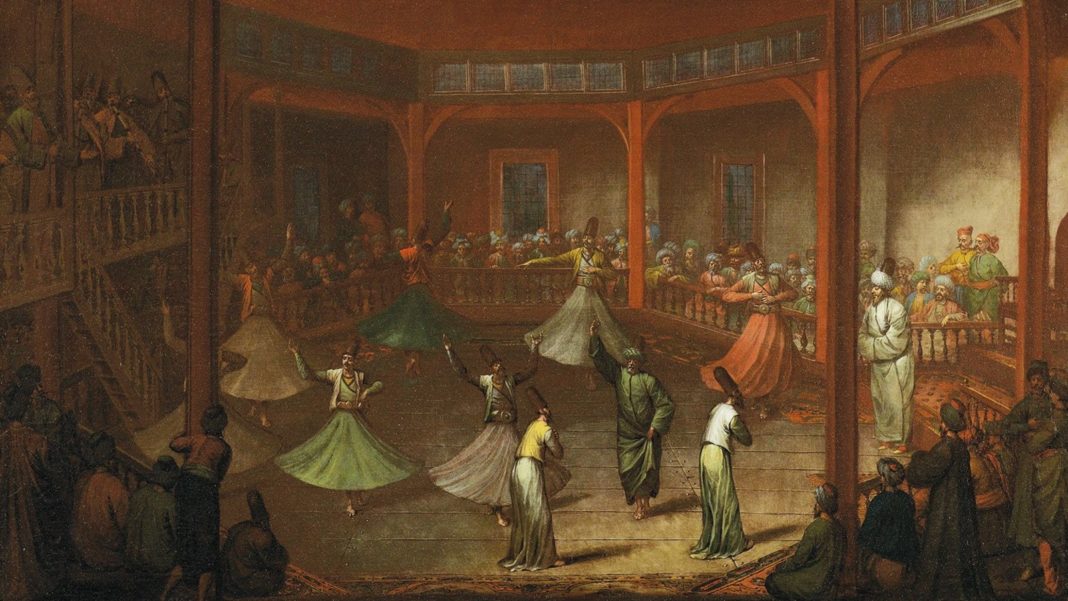BRILL, 19 Oct 2020, Series: Islamic History and Civilization, Volume: 177 Authors: Tijana Krstić and Derin Terzioğlu
“Articles collected in Historicizing Sunni Islam in the Ottoman Empire, c. 1450-c. 1750 engage with the idea that “Sunnism” itself has a history and trace how particular Islamic genres—ranging from prayer manuals, heresiographies, creeds, hadith and fatwa collections, legal and theological treatises, and historiography to mosques and Sufi convents—developed and were reinterpreted in the Ottoman Empire between c. 1450 and c. 1750. The volume epitomizes the growing scholarly interest in historicizing Islamic discourses and practices of the post-classical era, which has heretofore been styled as a period of decline, reflecting critically on the concepts of ‘tradition’, ‘orthodoxy’ and ‘orthopraxy’ as they were conceived and debated in the context of building and maintaining the longest-lasting Muslim-ruled empire. Contributors: Helen Pfeifer; Nabil al-Tikriti; Derin Terzioğlu; Tijana Krstić; Nir Shafir; Guy Burak; Çiğdem Kafesçioğlu; Grigor Boykov; H. Evren Sünnetçioğlu; Ünver Rüstem; Ayşe Baltacıoğlu-Brammer; Vefa Erginbaş; Selim Güngörürler.”
Tijana Krstić, Ph.D. (2004), University of Michigan, is Associate Professor at Central European University in Vienna, Austria. She is the author of Contested Conversions to Islam (Stanford University Press, 2011) and various articles on early modern Ottoman cultural and religious history. Derin Terzioğlu, Ph.D. (1999), Harvard University, is Associate Professor of History at Boğaziçi University in Istanbul, Turkey. She has published articles on early modern Ottoman religious, cultural and intellectual history.
CONTENTS
Acknowledgments
List of Figures
Abbreviations
Note on Transliteration
1 Historicizing the Study of Sunni Islam in the Ottoman Empire, c. 1450–c. 1750Tijana Krstić
Part 1 Rethinking Sunni Orthodoxy in Dialogue with the Past and the Present
2 A New Hadith Culture? Arab Scholars and Ottoman Sunnitization in the Sixteenth Century, Helen Pfeifer
3 A Contrarian Voice: Şehzāde Ḳorḳud’s (d. 919/1513) Writings on Kalām and the Early Articulation of Ottoman Sunnism,Nabil al-Tikriti
4 Ibn Taymiyya, al-Siyāsa al-sharʿiyya, and the Early Modern OttomansDerin Terzioğlu
5 You Must Know Your Faith in Detail: Redefinition of the Role of Knowledge and Boundaries of Belief in Ottoman Catechisms (ʿilm-i ḥāls),Tijana Krstić
6 How to Read Heresy in the Ottoman World, Nir Shafir
7 Prayers, Commentaries, and the Edification of the Ottoman Supplicant, Guy Burak
Part 2 Building a Pious Community: Spatial Dimensions of Sunnitization
8 Lives and Afterlives of an Urban Institution and Its Spaces: The Early Ottoman ʿİmāret as Mosque, Çiğdem Kafescioğlu
9 Abdāl-affiliated Convents and “Sunnitizing” Halveti Dervishes in Sixteenth-Century Ottoman Rumeli,Grigor Boykov
10 Attendance at the Five Daily Congregational Prayers, Imams and Their Communities in the Jurisprudential Debates during the Ottoman Age of Sunnitization, H. Evren Sünnetçioğlu
11 Piety and Presence in the Postclassical Sultanic Mosque,Ünver Rüstem
Part 3 Sunnis, Shi‘is and Kızılbaş: The Context- and Genre-Specific Nature of Confessional Politics
12 Neither Victim Nor Accomplice: The Kızılbaş as Borderland Actors in the Early Modern Ottoman Realm, Ayşe Baltacıoğlu-Brammer
13 Reading Ottoman Sunnism through Islamic History: Approaches toward Yazīd b. Muʿāwiya in Ottoman Historical Writing, Vefa Erginbaş
14 Islamic Discourse in Ottoman-Safavid Peacetime Diplomacy after 1049/1639, Selim Güngörürler

